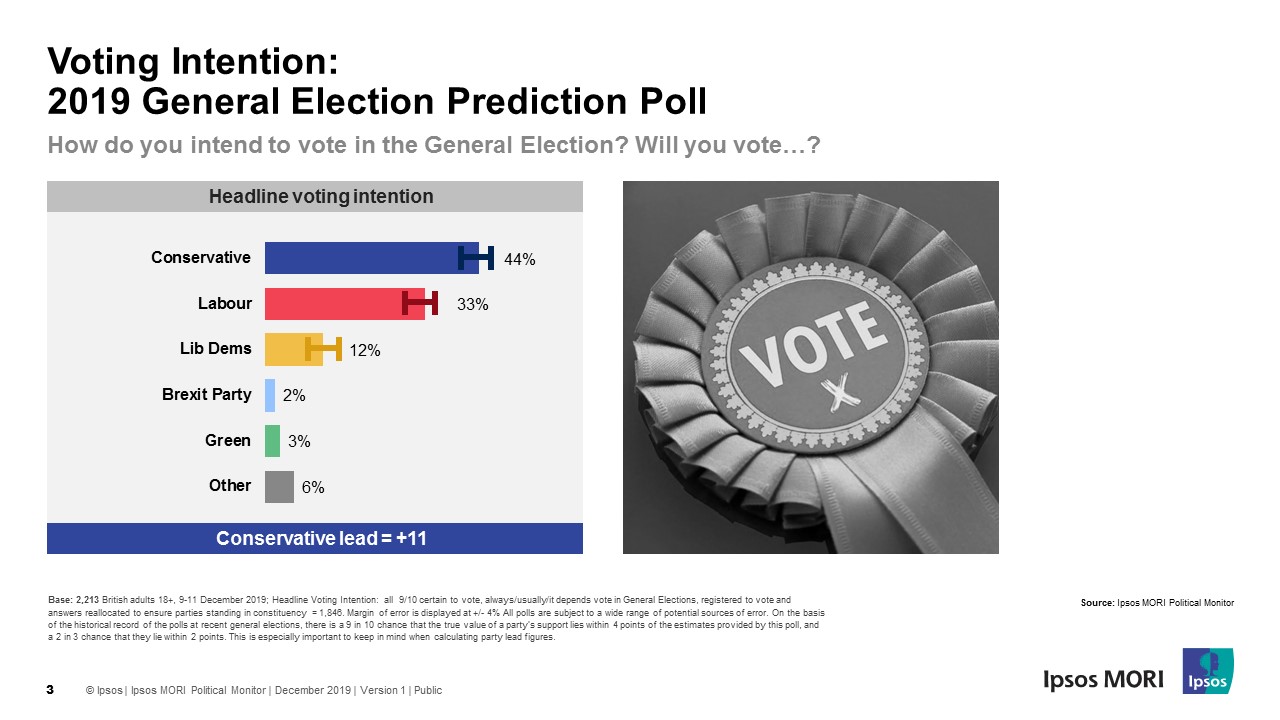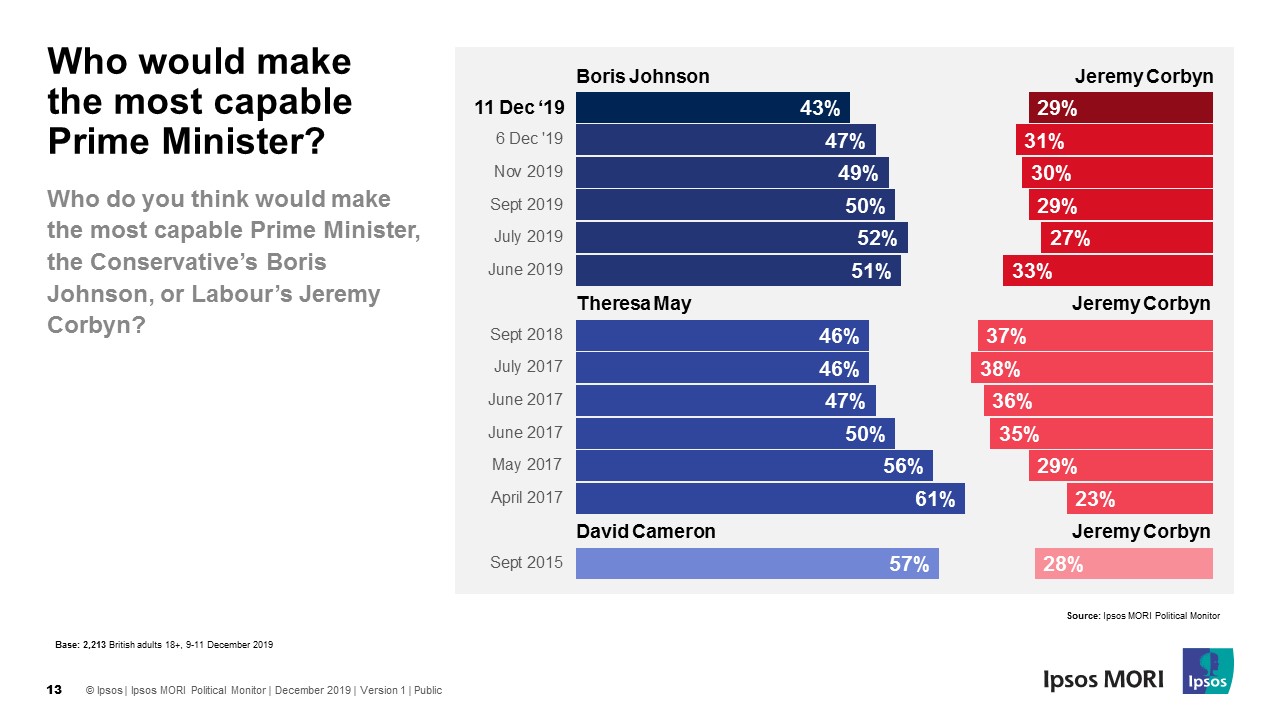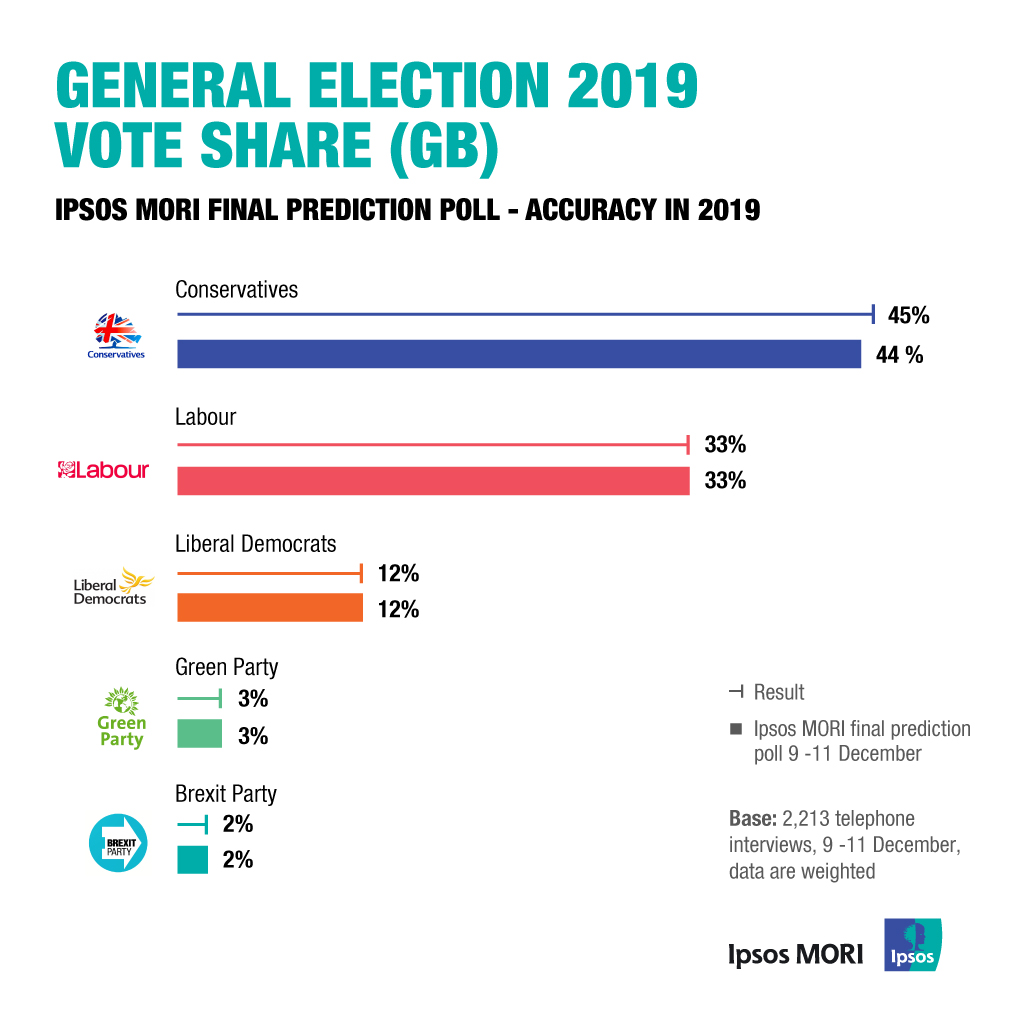Ipsos final election poll predicts Conservative victory
Ipsos’s final 2019 election poll for the Evening Standard indicates that Boris Johnson and the Conservatives are on course to win the 2019 General Election. Our headline estimate of voting intention is Conservative 44%, Labour 33%, Liberal Democrats 12%, Greens 3%, Brexit Party 2%, Others 6%.

This would be the biggest share of the vote the Conservatives have achieved in a General Election since Margaret Thatcher’s first victory in 1979, and implies an overall majority for the Conservatives in terms of seats is the most likely outcome. Nevertheless, it is important to bear in mind that all polls are subject to a margin of error, and also that nearly one in four (23%) of voters say they may still change their mind.
Our poll shows the Conservatives retaining 85% of their voters from 2017 and Labour retaining 79%. The age pattern seen at the 2017 election has been repeated in 2019. Labour hold a 26-point lead over the Conservatives among 18-34s whilst the Conservatives hold a 37-point lead over Labour with those aged 65+. The Conservatives lead by 15 points with men and 6 points with women.
In contrast with previous elections, there is little difference in the Conservative vote share across social grade. Traditionally, the Conservative vote has been substantially stronger among middle class voters. This time the Conservatives as well as Labour hold a marginally higher vote share among C2DEs than ABC1s.
Almost one in four (23%) say they might still change their mind before they vote (slightly above the 19% recorded in 2017). This rises to 41% of Liberal Democrat supporters, while Labour supporters are marginally more likely to say they could change their mind than Conservatives (by 25% to 17%).
65% of the general public say it is very important to them who wins the election, the highest on record before an election (first asked by Ipsos in 1987).
Boris Johnson leads Jeremy Corbyn in the final days of the campaign when it comes to who the public think would be the most capable Prime Minister. More than two in five think Mr Johnson would be the most capable (43% - down four points from last week) while fewer than one in three choose Mr Corbyn (29% - down 2 points from last week). One in five, 19%, say neither. Again, young people prefer Mr Corbyn (by 48% to 27% among 18-34s) while older voters still opt for Mr Johnson (by 58% to 17% among those aged 65+). In our final poll before the 2017 election, 47% thought Mrs May would be the most capable PM, 36% Jeremy Corbyn, and 7% neither.


Gideon Skinner, Head of Political Research at Ipsos, said:
Labour has squeezed the Liberal Democrat vote share over the course of the campaign, but our final poll suggests this has not been enough to prevent the Conservatives scenting victory. Overall, the Conservatives have managed to keep their vote from 2017 more successfully than Labour, while Boris Johnson retains his lead over Jeremy Corbyn as the most preferred PM. The country is not unanimous though, with clear splits by age as well as by other groups, and the number of people who said they might still change their mind is slightly higher than in 2017, with potential for more switching between Labour and the Liberal Democrats. And despite a record number saying the election outcome is very important to them, there are signs that the public is not wholly enthusiastic about the choices they face from either party.






